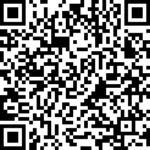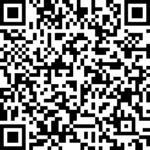I’m sure that you know the loop. That dialogue that runs in your head like a broken record: “What’s wrong with me?” “Why can’t I stop?” “Why did I have that drink?” “I should have just gone home.” You know the kind of thing, and it’s so familiar, exhausting, and quite frankly, completely unhelpful, isn’t it?
And yet the cycle of ruminating is probably one of the most common mental habits for anybody who is trying to change their relationship with alcohol. The mind tries to logically figure things out. It obsesses over the mishaps and keeps rewinding and then replaying past memories. But all that mental horsepower doesn’t break the loop. What does break the loop, however, is action.
You don’t need any more guilt trips or self-analysis. What you need to do is learn how to press the stop button rather than the repeat one. And then take empowered micro-steps that shift the pattern entirely.
Why the Mind Loops — And Why Action Breaks It
Because our brains are built for pattern recognition, when you repeat a thought or behavior, especially one tied to strong emotions, it forms a groove in your neural circuitry. The more you repeat it, the more the path becomes familiar. And a well-worn path is easy to follow, even if it actually leads you to somewhere you don’t really want to go.
That’s why ruminating or thinking about drinking less isn’t enough. Because you can’t outthink a loop. What you have to do is interrupt it.
How? I hear you ask! By using conscious micro-actions. What I mean by this is, small, intentional steps that shift your mind out of autopilot and into the present, into the here and now. These actions don’t have to be dramatic. In fact, the smaller and more doable they are, the more powerful they become.

How Micro-Actions Rewire Your Brain
Let’s take a look at how this can work. Here’s an example.
You’re feeling caught in a spiral of guilt because last night you said you wouldn’t drink, and you did. The loop in your head is going strong: “I promised I wouldn’t drink last night, and I did. What’s wrong with me?” Ok, consciously pause because that’s the moment where you can press the stop button.
Now, remember, you’re not trying to fix everything at once. Your aim is to take one micro-step.
Firstly, step outside for two minutes of fresh air and take three conscious breaths, really becoming aware of the breath as you inhale and exhale.
Having taken some deeper breaths and just spent a couple of minutes outside in the fresh air, you could open your journal and write down how you want to feel tonight.
Then you could take another step and tune into a hypnotherapy session in the Unconscious Moderation app.
And yes, these are small acts, and yet they are also profound shifts in direction. These steps are telling your unconscious (or subconscious), “We’re not on that old loop anymore. We’re doing something different now.” And with repetition, these new choices start carving new neural pathways that lead you towards agency, clarity, and freedom.

Awareness Opens the Door to Change
And action really does have the effect of calming the mind. Rumination creates an illusion of control because it feels like you’re involved in something productive by trying to figure stuff out. However, all it actually does is keep you stuck because it keeps the emotion alive by revivifying it, not resolving it.
Taking action, even micro-actions, sends the nervous system a new signal. It’s saying: “We’re ok. We are moving forward.” What this does is calms the stress response and gives you access to your inner resources like confidence and clarity.
There’s nothing wrong with you for looping. It’s how the mind works. But the fact that you’re noticing the loop? That’s awareness. And awareness really is the door to transformation.
So, the next time you notice that the mental tape is playing. Stop. Don’t judge it. Just take one micro-action and that’s all it takes to begin to rewire things. Make today the day that you stop the loop and start the shift.
Check out the Unconscious Moderation app to discover more.



